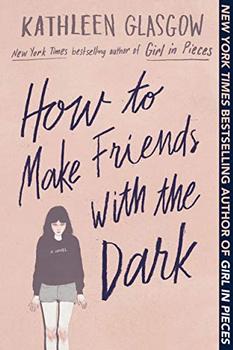Summary | Excerpt | Reviews | Beyond the book | Read-Alikes | Genres & Themes | Author Bio

Some books break us a little bit as readers; they force us to walk in the shoes of characters who are so much more than words on a page, who live in an endless mire of challenges, and who still manage to hold on to the slightest sliver of hope without even knowing that this is what they are doing. They teach us, the reader, to be a little bit better at being human. And that is the best thing I can say about Peter Brown Hoffmeister's third novel: it broke me. The book follows Gavin "Little" McCardell through his life in Pierce, Idaho, where, for all intents and purposes, he seems to be just holding things together on his own.
Little is used to being independent, but it is unsettling to read about how alone and unsupported he really is. His story moves back and forth in time, traveling his memories while also detailing his present life. What is noticeable is who is absent: Where is Big, his grandfather? And somewhat less importantly: Where is everyone else? With his older brother in jail, no parents in sight, and the only adults mentioned being the local sheriff, a delinquent aunt and uncle, and teachers, the most imposing adult figure in Little's life seems to be the memory of Big, and the web of secrets and fear that surrounds him. Yet despite not receiving much in the way of care himself, Little cares for others with a strength that many who live without his uncertainties fail to muster. He hunts and fishes to keep himself and his younger cousin fed (see Beyond the Book), struggles through school despite his dyslexia, and notices when others are hurting. He loves in his own way, without ever naming it that, or perhaps not even knowing that this is what he is doing.
As Too Shattered For Mending unfolds, one of the themes pushing throughout is the dynamic between strength and weakness, love and control. The language used around relationships and personhood, around discussions of race and who "good" people are – as framed from a primarily male character gaze – reveal much about how society defines masculinity, especially in places where strength is valued over compassion, if only for the sake of survival. The stark realities of Little's life force us to question how, in general, these kinds of social patterns and rules evolve, and how he, specifically, has been affected by them. They also force us to wonder who is complicit in them, even as we root for Little to find something better. We recognize that, in part, he is searching for a piece of his identity, and with it, a different kind of pattern and a different kind of masculinity. If anything, I wish that this had been explored more deeply by the author.
Hoffmeister's work might be directed at young adults, primarily, but it reflects the experience of youth in a way that becomes accessible to adults who might have forgotten how to step outside of themselves. This book challenges all readers at every turn, but especially adults who think too often that there are bad things that happen, but that it is someone else's job to handle them. However, despite these challenges, this novel also reaffirms or teaches readers about the capacity of the human spirit to flourish against impossible odds; a lesson that cannot be taught too often. With a character that will open reader's eyes to a life that should not be able to be imagined as true, and a plot that reveals more about human nature in its stark complexity, Too Shattered For Mending should be considered a must-read for all ages.
![]() This review
first ran in the September 20, 2017
issue of BookBrowse Recommends.
This review
first ran in the September 20, 2017
issue of BookBrowse Recommends.

If you liked Too Shattered for Mending, try these:

How to Make Friends with the Dark
by Kathleen Glasgow
Published 2020
A novel about love and loss and learning how to continue when it feels like you're surrounded by darkness.

by Helena Fox
Published 2020
A deeply hopeful YA novel about living with mental illness that's perfect for fans of Girl in Pieces.
People who bite the hand that feeds them usually lick the boot that kicks them
Click Here to find out who said this, as well as discovering other famous literary quotes!
Your guide toexceptional books
BookBrowse seeks out and recommends the best in contemporary fiction and nonfiction—books that not only engage and entertain but also deepen our understanding of ourselves and the world around us.